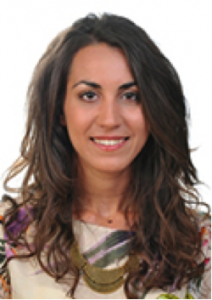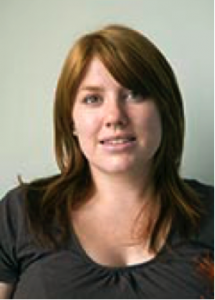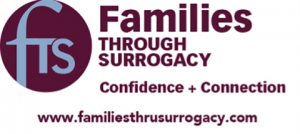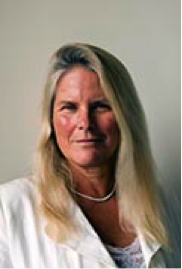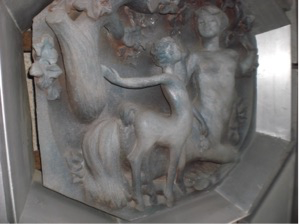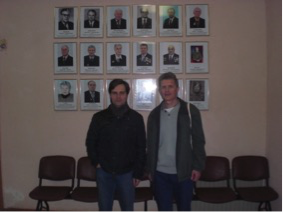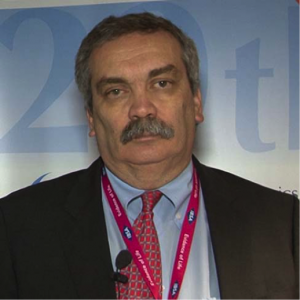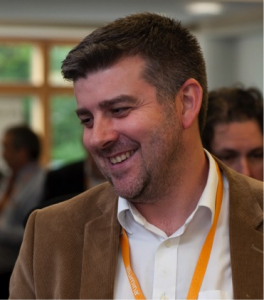Surrogate speak
Dr Kirsty Horsey was an invited speaker at the at the “Families Thru Surrogacy” international conference Held at the Strand Palace Hotel in March 2015. Kirsty spoke on Ethical responsibilities in surrogacy and addressed questions such as What are the ethical issues surrounding surrogacy and how they can be minimized. She also laid out a series of communication, strategies to control risk.
The conference included parents, surrogates, and children through surrogacy as well as experts from the UK, US, Greece, Russia and Ukraine e.g. Leading researchers and counselors, surrogacy providers, specialist lawyers and psychologists
Katia Neofytou was also a moderator on the session devoted to ‘How Altruistic Surrogacy Works in Greece for Foreigners.’ A few leading Greek clinics are now offering surrogacy to foreigners. The discussion covered what laws exist to protect surrogates and children, what is the infrastructure is like, and whether these children are considered citizens of Greece.
Katia is the named research assistant on the study by J. McCandless, et al entitled A Comparative Study on the Regime of Surrogacy in EU Member States (European Parliament , 2013) where she recently produced the reports for the legal regimes for surrogacy in Greece, UK, Ireland, Australia, South Africa, and USA. The study provides a preliminary overview of the wide range of policy concerns relating to surrogacy as a practice at national, European and global level.
http://www.europarl.europa.eu/RegData/etudes/etudes/join/2013/474403/IPOL-JURI_ET(2013)474403_EN.pdf
Living Primates!
Drs Nicholas Newton Fisher and Brandon Wheeler have recently formed an exciting new research effort under the banner the “Living Primates Research Group (LPRG)”
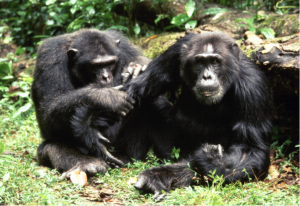
Chimpanzee grooming Photo: Nicholas Newton Fisher
LPRG was created to integrate and foster research into the behaviour and ecology of living species of primates. Also featuring Drs Tatyana Humble, Tracy Kivell, Geraldine Fahy, Matt Skinner and Diana Samuel, the group will address fundamental questions about evolutionary adaptation using living primates as model species. The purpose of this is to provide a comparative framework for the understanding of human biology, behaviour and reproduction and to investigate the biological dimensions of anthropogenic impacts on non-human primates. Research ranges from functional morphology to behavioural ecology and physiology, to cultural primatology, mating strategies and the interplay of primate biology, ecology and conservation.
Sexual decision-making: a change in the law is needed
Robin Mackenzie and John Watts (of the South London and Maudsley NHS Foundation Trust) have recently published an intriguing manuscript in the International Journal of Law & Psychiatry. Entitled ‘Capacity to consent to sex reframed: the need for an evidence-based model of sexual decision-making and socio-sexual competence,’ the authors argue that recent English legal cases have set a very low threshold for the capacity to consent to sexual activity. Indeed, the Court of Appeal stated recently that: “the ability to use and weigh information is unlikely to loom large in the evaluation of consent to sexual relations.” Mackenzie and Watts make the point that such cases significantly affect the legal status of such activities involving people who are diagnosed with either a learning disability, an autistic spectrum disorder or another neurodiverse condition.
This study has a principal focus on two recent legal cases that support the argument that the current test needs reframing from a relationship-centred perspective in favour of an evidence-based model of sexual decision-making.
The authors go on to argue that relevant training is essential for persons with a learning disability, autistic spectrum disorder or neurodiverse condition in order to promote socio-sexual competence. This is critical for resolving existing tensions between sexual rights guaranteed in international agreements, in criminal law provisions and in local authorities’ obligations to protect the vulnerable and sexual health concerns.
Mackenzie R and Watts J. Capacity to consent to sex reframed: IM, TZ (no 2), the need for an evidence based model of sexual decision-making and socio-sexual competence. International Journal of Law & Psychiatry 40(2015): 50-59.
Disgusting!
Professor Robin Mackenzie presented a paper at the 8th Skepsi international conference based around the one word title “Disgust.”
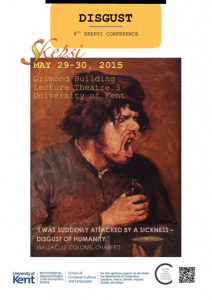 The meeting was held here at the University of Kent on the 29th and 30th June and explored the complex nature of the feeling of disgust in a variety of disciplines. Disgust is universally experienced feeling, even if the object of disgust as well as its linguistic expression, can vary greatly according to different cultures. The conference also explored the fact that abstract issues can elicit disgust, and whether disgust can (or should) be related to ethical outrage as a way to protect human dignity and social order.
The meeting was held here at the University of Kent on the 29th and 30th June and explored the complex nature of the feeling of disgust in a variety of disciplines. Disgust is universally experienced feeling, even if the object of disgust as well as its linguistic expression, can vary greatly according to different cultures. The conference also explored the fact that abstract issues can elicit disgust, and whether disgust can (or should) be related to ethical outrage as a way to protect human dignity and social order.
Robins’ paper was entitled “Cultural reframing of sexual disgust: now that sex and reproduction are not necessarily connected, how long should humans having sex with sentient sexbots, nonhuman animals and children provoke disgust?” clearly this was a very challenging topic that challenged some of our basest emotions. Disgust as an emotion is thought to have evolved to avoid infectious microorganisms; sexually costly behaviours; and avoiding anti-social behaviour. Some authors argue that sexual disgust stems not from a need to motivate avoiding mates who could potentially jeopardize our reproductive success. Similarly parts of the body such as the mouth and genitals are potential sources of both pathogens and sexual pleasure, creating what Robin refers to as ‘an attraction/repulsion dynamic.’
Given that what people view as immoral, disgusting or socially harmful is often shaped by cultural norms, Robin challenged long-held views of disgust in the context that the rise of reproductive technologies and contraception are severing necessary connections between sex and reproduction. Sex is considered acceptable among consenting adults and thus the concept of consent operates as a gateway to differentiate between lawful and prohibited sex. Sex with entities regarded as unable to provide legal consent or genetically related kin is legally outlawed, customarily provoking sexual and moral disgust. Robin made the point that sentient sexbots will soon become purchasable customised sexual partners. She then raised the following questions: How might sexual disgust become reframed as reproductive, virtual and robotic technologies progress? What should be the relationship between the reframing of sexual disgust and the law?
The conference also included intriguing titles such as: ‘Why is God Disgusted by Sex?’ ‘Changing Feelings of Disgust as Witnesses of Human Plasticity.’ Why are Injuries Disgusting?’ and ‘The Aesthetics of Ambivalence: Revolting Women in Contemporary Literature.’ Rumour has it that Monty’s Python’s “every sperm is sacred” even got an airing once or twice.

From Russia with love
Developing further the Kent – Russian connections, Drs Michael Romanov and Denis Larkin, of the Royal Veterinary College, visited in April the All-Russian Research Institute for Farm Animal Genetics and Breeding in Pushkin and the St Petersburg State University. They were invited speakers at a seminar and delivered talks about livestock and avian genetics and genomics. Highlights of the seminar were genomic selection in cattle, genome-wide diversity in sheep, and evolutionary genomics in birds. The Russian colleagues reported studies on high throughput genome-wide genotyping of a dairy breeding stock and examination of gene variation at candidate loci for poultry productive and reproductive traits. The parties set up plans for continuing partnership and collaborative research.
Photos: Reproduction “motifs” in the Animal Genetics Institute interior design:
Drs Larkin and Romanov in the Institute’s Hall of Fame:
Awards for Reproductive Medicine students
Students from the MSc in Reproductive Medicine: Science and Ethics featured prominently in the recent Kent student awards this year.
Chizia Kejeh was runner up in the “Chancellor’s Employability Points Award” category. This recognizes a student who has made an outstanding contribution to a University initiative, while participating in the Employability Points Scheme. Chizia was praised for her role in implementing a peer mentoring scheme for MSc courses in molecular biosciences.
Gullalaii Yousafzai went one better by winning the Outstanding Contribution to the Local Community category. This award recognized Gullalaii’s contribution in improving any area or aspect of the local community by offering support to a disadvantaged group or by volunteering with a community project (for example, fundraising, a new volunteering initiative or activities that educate or train other volunteers). Specifically Gullalaii was honored for or helping the homeless, volunteering as an English teacher, raising awareness of hate crime and supporting asylum seekers through being a birth partner.
Reader in the School of Biosciences and Director of Postgraduate Taught Programmes, Dr. Dan Lloyd, said “It’s great to see our students making contributions to this important academic discipline while also playing an important role in the broader community. Chizzy and Gullalaii represent terrific examples of our postgraduate population in the School of Biosciences through their extra-curricular activities”.
Preimplantation Genetic Diagnosis International Society (PGDIS) meeting
Following a highly successful meeting held in Canterbury in 2014, the PGDIS bandwagon moved to Chicago for its 14th symposium. Celebrating the 25th anniversary of PGD being performed by the group of CISoR’s Professor Alan Handyside (at the Hammersmith Hospital), the meeting had both a nostalgic and clinical flavour.
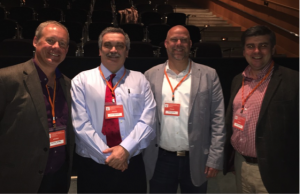
CISoR quartet. Darren Griffin, Luca Gianaroli, Gary Harton and Alan Thornhill
Due to being incapacitated with a broken leg, Professor Handyside could not make it to celebrate what he started back in 1990 but CISoR was well represented with Professor Darren Griffin chairing a session and new honorary appointees Professors Alan Thornhill and Luca Gianaroli plus Dr Gary Harton all taking prominent roles.
Representatives of CISoR’s “PhD by distance” programme were also in attendance including Tyl Taylor, Colleen Lynch and Tiffany Stankewich. Both Colleen and Tiffany gave oral presentations with Colleen benefitting from the prize she won at the last PGDIS (free registration and an opportunity to speak) and Tiffany giving her first (and very well received) presentation in an international forum.
Many of the newest technologies in PGD were covered including next generation sequencing (NGS) and Karyomapping – the Handyside/Harton/Thornhill/Griffin (+ colleagues) approach for universal detection of genetic disease. Perhaps the most moving story of the conference was however two families who underwent the “saviour siblings” form of PGD telling their personal stories. These included the Nash family, the first family to undergo this treatment, who told how the life of their daughter Mollie (pictured front centre) was saved by stem cells from the umbilical cord of her brother Adam (right of picture). Poressor Sally Sheldon’s work helped develop some of the UK legislation for saviour siblings based on the story of the Nash family.
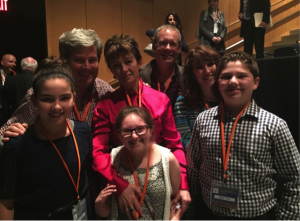
PGDIS president and treasurer Svetlana Rechitsky (in pink) and Darren Griffin with the Nashes, the original “Saviour Sibling” family.
CISoR is now well represented in the board of PGDIS with Alan Handyside now president-elect and Darren Griffin the treasurer of the society. Next year we move on to Bologna where our new recruit Luca Gianaroli will take the reins. In his speech to introduce the 16th PGDIS Luca presented a “survival guide to Bologna.” This principally involves being aware that Bolognaise sauce is never served with spaghetti (always tagliatelle), cappuccino should never been drunk after noon and limoncello never before 6pm.
CISoR would like to express its thanks to hosts Anver Kuliev (executive director of PGDIS) and Svetlana Rechitsky (president of PGDIS) for being such gracious hosts and making us all welcome.
Honorary appointment for Bologna Professor
Professor Luca Gianaroli has recently been appointed honorary Professor of Reproductive Medicine here at the University of Kent.
Luca is a specialist in Obstetrics and Gynecology and has been a pioneer of reproductive medicine since the late 1970s. He is currently Scientific Director of S.I.S.M.e.R. (Società Italiana di Studi di Medicina della Riproduzione), based in Bologna, Italy; Scientific Director of the IIARG network (International Institutes of Advanced Reproduction and Genetics), which brings together specialized centers located in various European countries. In this role he is the academic lead for all research conducted in all its laboratories and clinics. His research interests have led to co-authorship on over 250 manuscripts and 9 books and currently include:
- The use of acupuncture for medically assisted reproduction
- Screening of genes involved in reprograming the oocyte based on age, ovarian pathologies and fertility
- Analysis of the chromosomes and mitochondria of human oocytes and polar bodies
- Sperm freezing as an alternative method of conservation
- Correlation between birefringence, DNA fragmentation and FISH of the human sperm.
- Evaluation of free radicals in seminal liquid to assess oxidation stress.
- Research projects on Mesenchymal stem cells
He is an active member of numerous international and national organizations where he plays an important role; he is the former President of the Italian Reproduction Society and the European Society of Human Reproduction and Embryology (ESHRE).
The members of CISoR look forward to working with Luca on medical, scientific and ethical projects.
New honorary Professor
Dr Alan Thornhill, currently Associate Director of Market Development at Illumina, Inc (Reproductive and Genetic Health) has recently been appointed Honorary Professor of Reproductive Genetics. Alan has amassed an impressive list of publications and senior academic positions in industry and the clinic and he has pioneered the interface between basic research and clinical practice in reproductive medicine. His approaches have led to new developments in clinical practice e.g. in genetic diagnosis, embryo freezing, gene expression and in the regulation of IVF practice.
Alan has distinguished himself in his position as Honorary Reader here at the University since his appointment in 2008, specifically with respect to his publications in the University’s name (14 in this period), income generation, research student support and guidance (Alan has supported 8 PhD and 7 MSc students with advice, clinical samples, income and co-authored publications), representing the University at national and international conferences, international conference organization, teaching innovation (Alan contributes regularly to MSc teaching and helped develop highly regarded graduate student programmes) and internal, local and national recognition (he was a co-recipient of a University of Kent Enterprise award). Since 2009, he has been a professional member of the Human Fertilization and Embryology Authority (HFEA) – the UK’s fertility regulator and was a key partner in the initiation and development of CISoR.
Alan’s research interests lie in understanding the basic genetics of early human development and taking that knowledge through to clinical application. He is relatively unique in the field of IVF in being, first and foremost, a basic scientist, second an active IVF practitioner who has held directorial roles in leading clinics, third a prolific industrialist and product developer with a leading role in a major biotech company; and finally an active member of government regulatory bodies. In his career he has Published over 50 full length, peer-reviewed, original articles on developmental biology, assisted reproduction and reproductive genetics that seek to answer fundamental questions relevant to human development and disease. These include the levels and patterns of gene expression in human preimplantation embryos, gross genomic differences in IVF embryos and the relationship between nutrient uptake, embryo morphology and genetics. His publications also reflect his leading role with the leading worldwide and European regulatory bodies and a commitment to applying new knowledge in the clinic for patient benefit. Students benefit from his authoritative and research-embedded teaching as he brings all the aspects of his considerable experience into the classroom. Alan has presented, chaired sessions and been an invited speaker at numerous national and international conferences and he was was co-chair of the Preimplantation Genetic Diagnosis Society (PGDIS) meeting held here at the University of Kent. Alan has been listed in Who’s Who since 2012 and is a regular contributor to the media including: Television appearances e.g. ITV 24, ITN, Channel 5, SKY News, BBC News 24, Embarrassing Bodies (Channel 4), The 21st Century Girl’s Guide to Sex (Channel 5) and BBC 1’s The One Show. He is also a regular contributor to BioNews (run by Progress Educational Trust)
Alan is an integral part of CISoR’s future plans for research, innovation, teaching and enterprise and we are delighted for him and his family that he has received this award.
